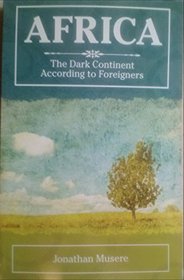Original Publication Date (YYYY-MM-DD)
Search -
Africa the Dark Continent According to Foreigners
Africa the Dark Continent According to Foreigners
Author:
Though the phrase, concept, or application "Dark Continent" has existed for at least four centuries, increasingly over time it came to be more significantly bestowed on Africa, more prevalently on "black" or sub-Saharan Africa. Over the recent past centuries, the region was increasingly inundated by foreign prospectors, adventurers, explorers, m... more »
Author:
Though the phrase, concept, or application "Dark Continent" has existed for at least four centuries, increasingly over time it came to be more significantly bestowed on Africa, more prevalently on "black" or sub-Saharan Africa. Over the recent past centuries, the region was increasingly inundated by foreign prospectors, adventurers, explorers, m... more »
ISBN-13: 9780964596955
ISBN-10: 0964596954
Publication Date: 4/15/2016
Pages: 310
Rating: 1
ISBN-10: 0964596954
Publication Date: 4/15/2016
Pages: 310
Rating: 1
5 stars, based on 1 rating
Book Wiki
Genres:
- History >> Africa
- Nonfiction >> Education >> Homeschooling




